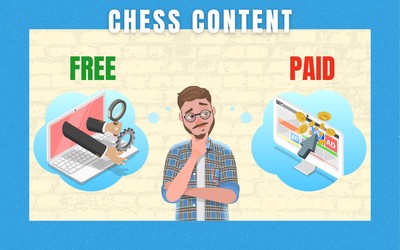
Chess Clarity: Overcoming Decision Fatigue for Peak Performance
The more decisions you must make daily, the worse they get. This phenomenon is called decision fatigue.After a long workday, thinking about chess moves gets harder. Not only because you are tired, but also because you’ve already made so many decisions.
Two Solutions:
- Train Chess first thing in the morning
- Eliminate & Simplify non-necessary decisions
In this newsletter, I will show you how to do the latter (the first is self-explanatory).
More options aren’t always better. Constraints can make you happier AND more focused.
Recently, I traveled to Malta for a Poker Festival. Compared to Switzerland, it was the Poker Player’s dream. For 7 days straight, you could choose between several daily tournaments and 24/7 cash-game action.
By day 3, I was exhausted before I sat down at the Poker table. Not only did I make many decisions in hundreds of Poker hands the previous days, but I mainly felt depleted by the decision of what & when to play.
Choosing from an unlimited buffet isn’t always easy. At any moment, my mind was trying to decide if I should:
- Play Cashgame
- Play one of many tournaments that day
- Relax
Not only was it stressful to decide what was best at any given moment, but I also felt FOMO no matter the decision. While relaxing, I feared there might be some good cash game action; playing cash games, I thought it might be smarter to play a tournament or relax.
Only when I applied constraints on my own did my mind finally relax and enjoy the experience. Here is what I did:
No tournaments, Cash-game from 3 PM to 10 PM. That’s it.
It turns out that unlimited choice is closer to hell than heaven. In a world of abundance, this truly is a luxurious problem. But a real one.
Avoid Decision Fatigue For Your Chess
If you want to feel fresh by the time you get to study or play chess, you need to eliminate & automate most of the unnecessary decisions throughout the day.
You can decide how extreme you want to do this. I was very extreme at chess tournaments, while I eased a little bit at home.
A few examples:
- Prepare the clothes you put on before you go to sleep.
- Create habits for coffee & lunch. Monday = Pasta at Alfredo’s, Tuesday = Tacos...
- Plan your chess training on a weekly basis. Write down the day, time & resource.
- Limit yourself to 1-2 high-quality resources at any given time.
- Decide which opening you are going to play in the evening before a game.
- Spend little to no time on not-so-important moments throughout a game.
- Finish a book/course before buying another one. No exceptions.
This list could go on and on.
You get the point. Think about what is really important to you and only spend decision energy on it. This way, you avoid decision fatigue whenever it matters most.
Be aware that spending time & energy on your food choice, which rooks to put on e1, and the way you dress will harm decisions that make a difference: how to treat your loved ones, which job offer to accept, or if you should take that seemingly free rook or not.
Keep improving,
Noël
This article was originally posted on my own Blog, NextLevelChess.
Click here to read more similar articles.
Whenever you're ready, there are three ways I can help you:
- Get my Free eBook, The Art of Chess Training. It teaches you all you need to know to start training in a structured, efficient way.
- Are you below 1400 Lichess? Then my new course, Beginner Chess Mastery, is perfect for you. Learn all the fundamentals and get a free White + Black Opening Repertoire. Learn more here.
- Last but not least, you can get more Chess insights by signing up for my free Friday Grandmaster Insights Newsletter. Join 16,000+ chess enthusiasts here.
More blog posts by NoelStuder

Chess Blunder Check: Stop Hanging Pieces And Avoid Frustration
You play a great game, four hours of high focus and great moves. It feels like victory is just about…
How To Overcome Chess Anxiety
Imagine facing a saber-tooth tiger that hasn't eaten in days. Your body goes into fight-or-flight mo…
The Secret to lasting Chess Improvement
We are nearly through Q1 of 2024 already. This is where we get to witness the huge difference betwee…